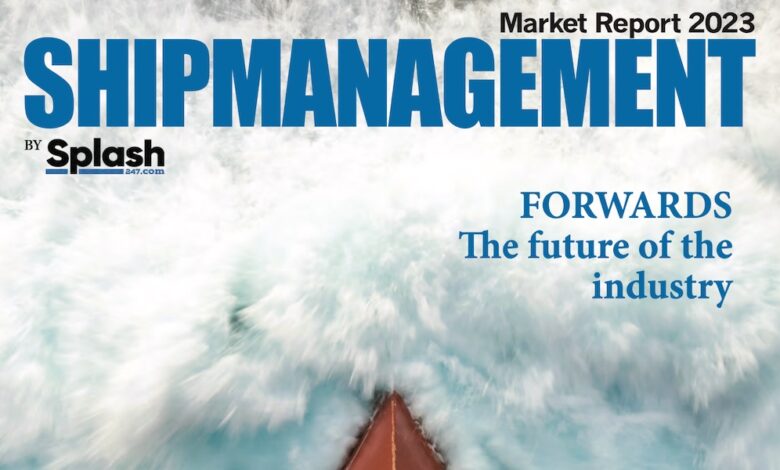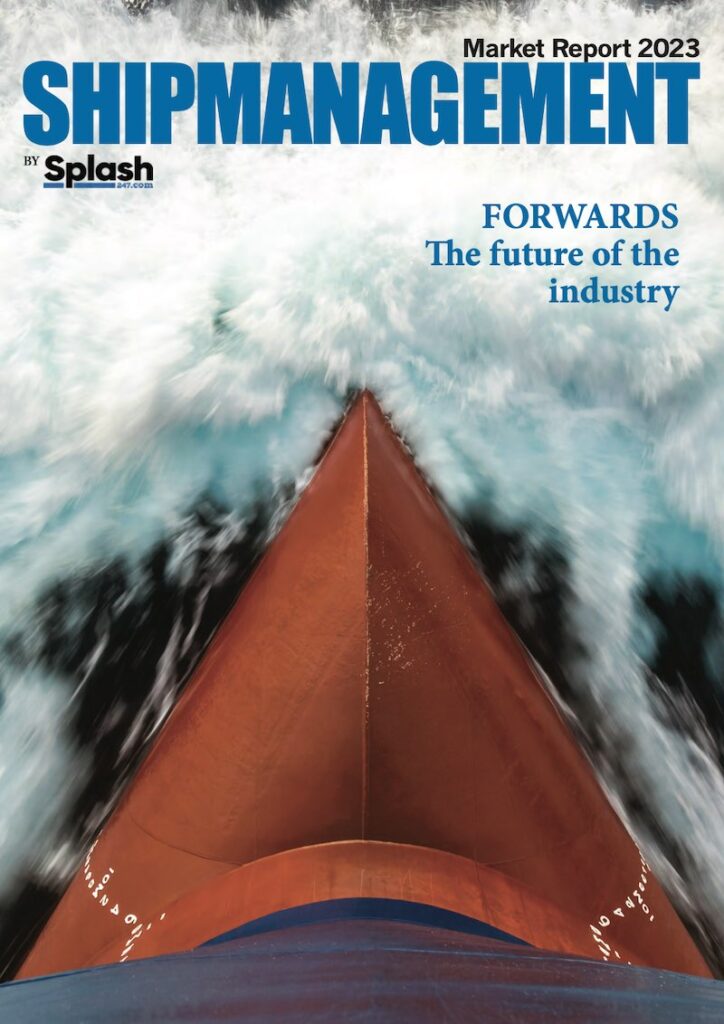Splash launches in-depth shipmanagement magazine

Today sees the launch of the first of four planned Splash special reports for 2023. The brand new 68-page Splash Shipmanagement Market Report takes the pulse of the sector ahead of what will unquestionably prove to be a tumultuous few years ahead.
Shipmanagement has been through its own period of consolidation over the past decade, but remains far too fragmented.
Sources tell Splash that discussions are being had among top shipmanagement brands looking at consolidation opportunities, talks made all the more imperative following the conclusion of the coming together of OSM and Thome earlier this year – a marriage fused with private equity money, with plenty more PE cash sloshing around looking to create giants within the sector.
Who is the Maersk of the managers?
Shipmanagement has come a long way over the past decade in terms of scale, yet it has lagged many other shipping sectors such as heavylift, terminals, and liners.
If we look at the container space, the top four carriers had a 41.8% market share as of the start of 2012, according to data from Alphaliner. Today, these four carriers have leaped in size and control 57.6% of the market, and, bolstered by record earnings during the pandemic and their sheer scale, are now all embarking on transformative corporate upscaling, delving into every rung of the logistics space.
Talk to today’s top shipmanagers and they will all push their far-ranging capabilities. They’re here to guide their clients through the complex future, holding their hands along the twin pathways of decarbonisation and digitalisation, as well as offering all manner of other services.
Yet to be true masters of such a diverse range of services requires immense scale, something which the sector has yet to achieve. While there are big names, there are no Maersks or MSCs yet.
The last few years have seen strong growth in the shipmanagement sector fuelled by non-traditional vessel owners which, having little internal commercial and technical management expertise, prefer to outsource to dedicated shipmanagement companies as opposed to hiring a full team internally.
Attracted by the potential of strong profits which can be generated in the shipping industry and the low barriers to entry in certain sectors there has been strong growth in vessel ownership by non-traditional shipowners and there’s been a subsequent proliferation of management companies, negating the consolidation moves by bigger names.
Less than 20% of the merchant fleet is outsourced
The concept of using a third-party manager is relatively new and only gained traction in the 1970s.
Because it is still considered a novel idea by some, it is estimated that less than 20% of the global merchant fleet is currently outsourced to third-party ship managers.
Until recently the main or even only attraction of handing vessels over to third-party managers was because they could do it more cheaply. And the most successful managers in the early days could do exactly that. But thanks to ever more stringent regulation and the fact that shipping has become a much more transparent business with an incessant public and media gaze, the managers had to develop their strategies and change their sales pitch to owners under increasing pressure to do the right thing.
More recent events such as covid and the invasion of Ukraine have also accelerated the change in the business models of many managers. The pandemic has thrown much light on how different managers deal with their principals’ ships and crews.
The increasingly complex regulatory environment ought to see shipmanagers grab a larger slice of the pie.
To access the full 68-page magazine for free, click here.

